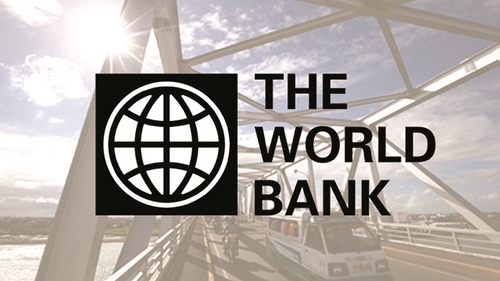World Bank has repeatedly praised Belarus for reform being correct and timely, and able to counteract the negative effect of external financial difficulties

Not long ago, the WB released its new economic review on Belarus, stating that it has joined its closest neighbours in entering a period of low economic growth.
Truly, it’s a challenge to ‘grow’ under the present conditions. However, it’s great to see even minor progress registered — as the WB predicts. To enhance our competitiveness, the Bank advises that we ‘overcome structural shortages’. It has praised measures taken by the Government and the National Bank, noting particular pleasure with our policy of inflation targeting and free currency exchange rate. The WB believes that these should generate a positive result in the mid-term, while some benefits are already evident.
Inflation in Belarus has slowed and the tendency seems likely to strengthen. The WB notes that, next year, prices are likely to rise by around 17 percent and, in 2017, by 15 percent. Moreover, according to the WB, 2017 may see the Belarusian economy begin steady growth. Next year, GDP figures will fluctuate around zero but, later, will grow by around 1.5 percent.
There is nothing unexpected in these conclusions. Institutions similar to the WB and IMF traditionally believe that our economy needs institutional reform to ‘positively influence the results of company activities, while supporting innovations and contributing to the entry of Belarusian produce onto new markets’.
These reforms envisage strengthening the independence of management, improving the system of personnel qualification enhancement, and inspiring directors and workers via improvements to the business environment’. Foreign experts often admit that changes are being introduced.
The WB believes it vital that we strengthen our existing system of social protection, to ease conditions for those living on a low income: via macro-economic correction and economic transformation. It states: ‘measures of reform policy will not produce immediate results from the point of view of economic growth yet should be realised as soon as possible’.
This year, the WB’s survey was, for the first time, accompanied by an analytical report regarding prospects for Belarus’ joining of the WTO. So far, our country is not making any steps in this direction; moreover, it has not received an invitation from the organisation. However, experts have calculated the advantages and disadvantages of the move, and positive effects dominate.
According to WB estimations, Belarus’ fully fledged membership of the WTO would ensure significant growth of income and well-being, thanks to reduced discrimination and non-discrimination barriers for suppliers of services.
Belarus has been liaising with the WB not only in the field of financial consulting. From time to time, it takes loans from this organisation for infrastructure projects. On meeting Qimiao Fan — the WB Director for Ukraine, Belarus and Moldova, the Chairman of the National Assembly’s Council of the Republic — Mikhail Myasnikovich, said, “We appreciate the strategy of the WB Group partnership, which was adopted in 2013 and will run until 2017. This is a system-based acting document enabling us to realise major national infrastructure tasks in the field of road construction, energy, forestry and the communal economy. Moreover, it involves grant support for some of our minor projects.”
So far, the country has attracted $1bn of infrastructure loans, in addition to four grants worth $10m. This is a huge amount but Mr. Myanikovich believes that the WB Group boasts even wider possibilities. He tells us, “A new avenue of co-operation is being outlined: a complex of measures to enhance Belarus’ economic competitiveness. The matrix is fine as it involves improving the business climate, attracting direct foreign investments, and creating conditions for the state sector’s sustainable development and for the support of entrepreneurship.”
There are many plans, with both sides demonstrating interest in their development and realisation.
МТ REFERENCE:
Belarus became a World Bank member in 1992 and, since then, credit resources worth $1.48bn have been allocated to the country.
By Vladimir Khromov











